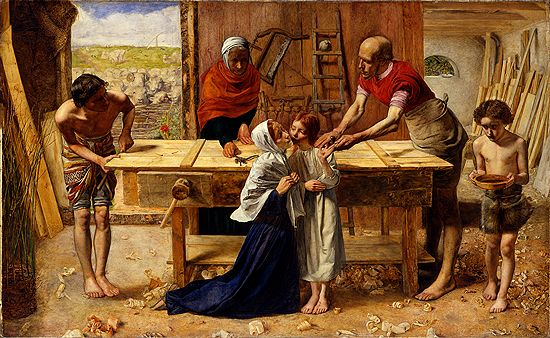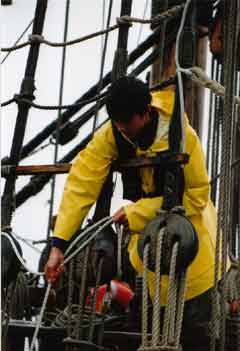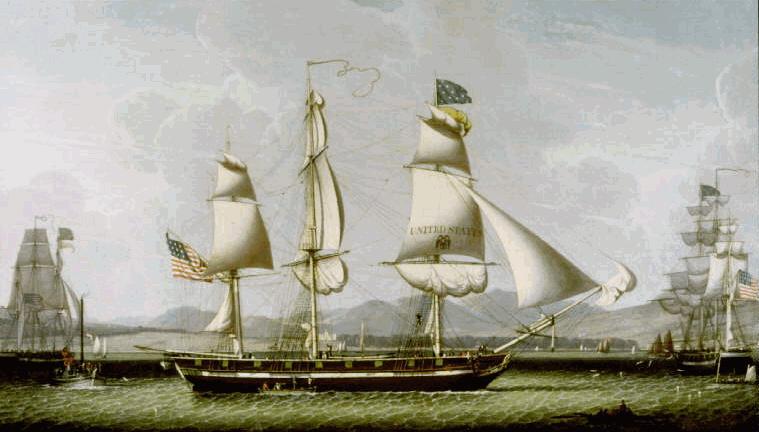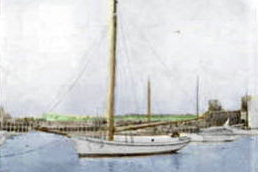
Western Ocean Law was Rule with a Fist. “Blow” refers to knocking a man down with fist, belaying pin or capstan bar. Chief Mates in Western Ocean ships were known as “blowers,” second mates as “strikers” and third mates as “greasers.”
There are countless versions of Blow the Man Down. The one here is from the Burl Ives Songbook and tells of the Blackball Line. The Black Ball Line was founded by a group of Quakers in 1818. It was the first line to take passengers on a regular basis, sailing from New York, Boston and Philadelphia on the first and sixteenth of each month. The Blackball flag was a crimson swallow-tail flag with a black ball.
The ships were famous for their fast passage and excellent seamanship. However, they were also famed for their fighting mates and the brutal treatment of seamen. (Western Ocean seamen were called “Packet Rats”). Many ships bore the name “bloodboat.” Most of the seamen hailed from New York or were Liverpool-Irish.
By 1880 the sailing ships were being replaced by steamers and the packets entered other trades or were sold.
Thanks to www.contemplator.com for this research.
To my way [Am] haye, [Dm] blow the man [G7] down,
And pray pay attention and listen to me,
Give me some time to [C] blow the man down.
I’m a deep water sailor just in from Hong Kong,
to my way haye, blow the man down,
if you’ll give me some grog, I’ll sing you a song,
Give me some time to blow the man down.
‘Twas on a Black Baller I first served my time,
to my way haye, blow the man down,
And on that Black Baller I wasted my prime,
Give me some time to blow the man down.
‘Tis when a Black Baller’s preparing for sea
to my way haye, blow the man down,
You’d split your sides laughing at the sights that you see.
Give me some time to blow the man down.
With the tinkers and tailors and soljers and all
to my way haye, blow the man down,
That ship for prime seaman on board a Black Ball.
Give me some time to blow the man down.
‘Tis when a Black Baller is clear of the land,
to my way haye, blow the man down,
Our Boatswain then gives us the word of command
Give me some time to blow the man down.
“Lay aft,” is the cry,”to the break of the Poop!
to my way haye, blow the man down,
Or I’ll help you along with the toe of my boot!”
Give me some time to blow the man down.
‘Tis larboard and starboard on the deck you will sprawl,
to my way haye, blow the man down,
For “Kicking Jack” Williams commands the Black Ball.
Give me some time to blow the man down.
Pay attention to order, now you one and all,
to my way haye, blow the man down,
For right there above you flies the Black Ball.
Give me some time to blow the man down.








